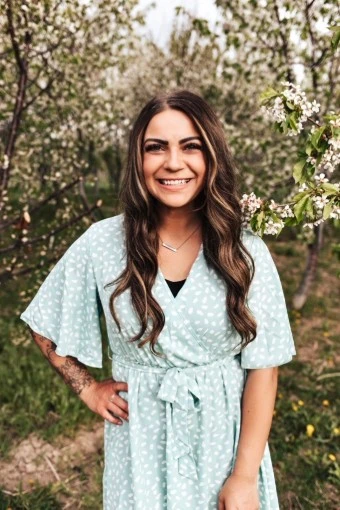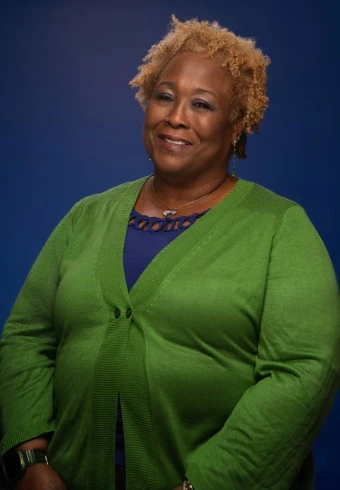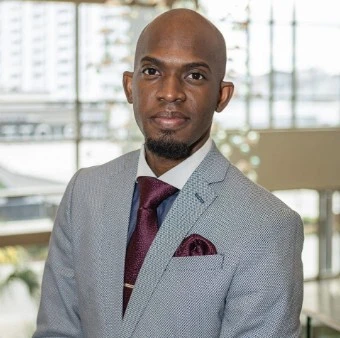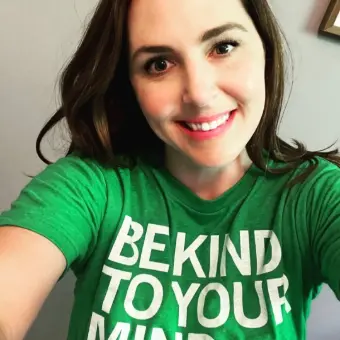November 23 marks International Survivors of Suicide Loss Day — a day dedicated to those affected by suicide, offering a space for healing, connection and shared understanding. This observance shines a light on the grief experienced by those who have lost a loved one to suicide, providing an opportunity for survivors to come together, reflect and support one another.
Suicide is a tragedy that affects not just the individual, but their family, friends and entire community. In 2022, suicide was the 11th leading cause of death in the United States, with an average of 136 lives lost every day — 49,476 in total. These statistics are not just numbers: They represent people, families and communities shattered by loss.
Grief after a suicide loss is deeply personal and can be particularly complicated. A survivor’s emotional journey can be filled with confusion, guilt, anger and sadness, and it’s important to recognize that grief does not follow a set timeline. While there is no one “right” way to grieve, many survivors observe that finding meaningful ways to honor their loved ones can help them navigate their emotions and move through the grieving process. The Mental Health First Aid (MHFA) curriculum notes that bereavement grief, which occurs with the death of a loved one, can have some of the same symptoms as major depression, like intense sadness and withdrawal from daily activities. (Here are a few ways to help yourself or a loved one process grief.)
In addition to supporting the mental health of survivors, MHFA USA is committed to suicide prevention. As we reflect on that commitment, we’re inspired by the stories of four First Aiders who have used MHFA and their own experiences to support themselves and those around them. For these four and many others, MHFA skills have been essential to navigating difficult mental health conversations and offering meaningful support to friends, family or colleagues who may be struggling.

“I started the journey to be an advocate for mental health just recently but have had the determination to be and build a support system for my family, friends and peers around me starting in 2018. My drive to start focusing on my mental health journey and to take a MHFA class stemmed from the aftermath of my 19-year-old sister dying by suicide in October of 2018. After I started my healing process, I knew that I wanted to talk about mental health and to be a better advocate of this topic. Although it took me a while to feel comfortable talking about that event, I learned that part of my own personal healing journey was to openly talk about my sister and all of the emotions and feelings I had that revolved around her suicide. Taking MHFA was a huge step in healing my chronic grief, and I am so glad that I was able to take this MHFA class to better understand both sides of the mental health struggle that is very prominent.”

“My story began at 10 years old, when I learned that my mom had attempted suicide and was in the hospital. I didn’t fully understand what had happened, but I remember buying her a bag of Milky Ways as a small gesture of comfort. Over the years, my mom was diagnosed with schizophrenia and spent much of her life in and out of hospitals, undergoing treatments before she passed. I always feared I might face the same fate. This fear led me to seek help as an adult, seeing a psychiatrist during my marriage to check if I was OK. At that time, I was deeply depressed. Later, in 2020, my middle son, Joe, died from COVID-19 at the age of 34, followed by my father who also passed. The grief was overwhelming — crushing my heart into pieces. That’s when I decided to take action. I enrolled in a MHFA course, and my path toward healing took a more active direction. A year later, I made a significant career change, moving into the behavioral health field. I now work full time for a behavioral health organization in my city and also serve on the Black Mental Health Response Team, which was formed after the May 14, 2022, Tops massacre in Buffalo. Our team reaches out to the community, providing support and care in times of need. In the past few years, I’ve earned my two-year MHFA certification additional training through the Mental Health Association in New York state. My mission is to share my story, remind others that it’s OK to seek help, and encourage people to take care of their mental health. In memory of my son Joe, I hope to inspire others to embrace self-care and seek the support they need.”

“Being a Mental Health First Aider is probably the biggest breakthrough that I have had during my mental wellbeing journey. MHFA taught me how to respond to my own mental challenges and how to address my emotions. I became aware of the signs of mental illness, then a light bulb went off. I later became an MHFA Instructor myself, and advocacy became a priority of mine. Now, I teach and serve on the board of American Foundation for Suicide Prevention (Virginia Chapter) and Suicide Prevention Council of the Roanoke Valley. One principle that I live by is that I must give it away to keep it, which is my motivation to teach MHFA. The more I continued to enhance my knowledge and comprehension related to mental health, the more I became passionate to teach others.”

“When I was in eighth grade, I really struggled. I kept it all to myself, unsure of how to cope. I started being ‘too sick’ to go to school, missing several days at a time. I felt lonely and began having suicidal ideations. Eventually I wrote my mom a letter, sharing that I didn’t want to be alive anymore, asking for help. I was ashamed to say anything out loud, but the words poured out on the page. My mom responded with compassion, and we went to see my primary care provider to begin getting me support. I am grateful to be able to elevate the conversation around mental health and be a First Aider. I can see so many signs and symptoms in myself when I reflect back on my eighth-grade experience. I would say to anyone struggling: You are never truly alone. Let someone know when you’re hurting. If you or anyone you know is considering suicide or self-harm or is anxious, depressed, upset or needs to talk, call the 988 Suicide & Crisis Lifeline or text the Crisis Text Line at 741-741.”
If you or someone you know is struggling, don’t hesitate to reach out for support. There is always help available, and you are not alone.
Sources